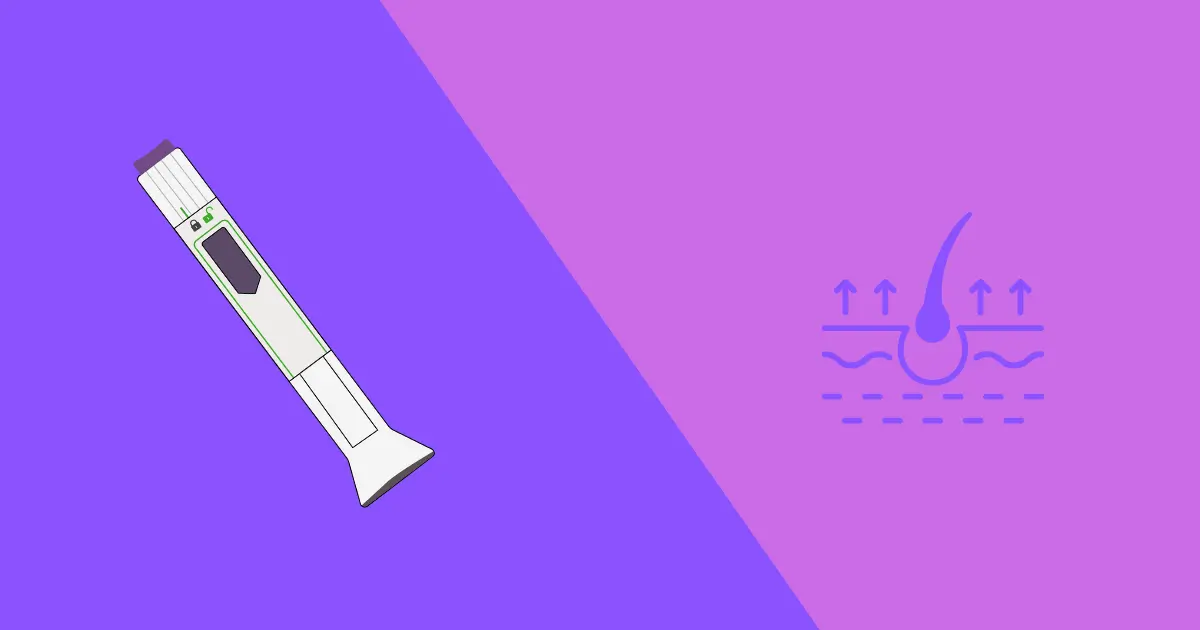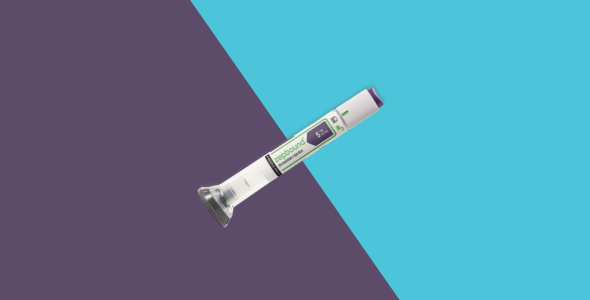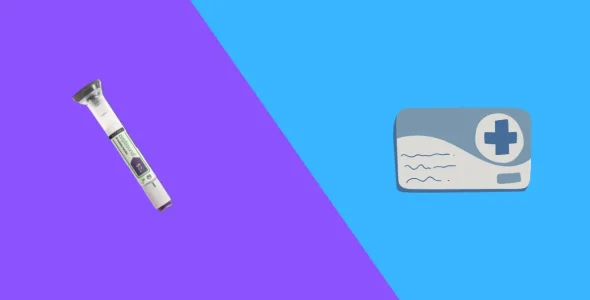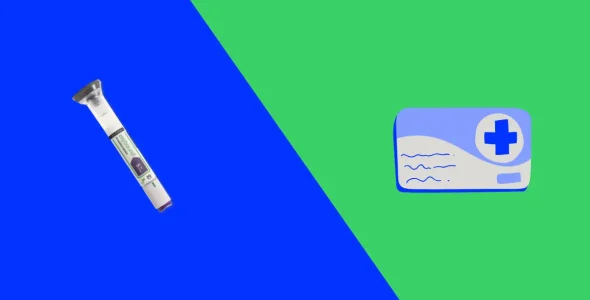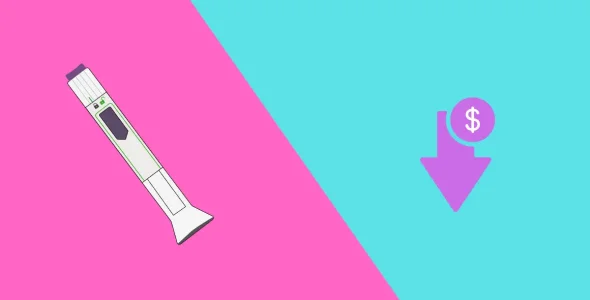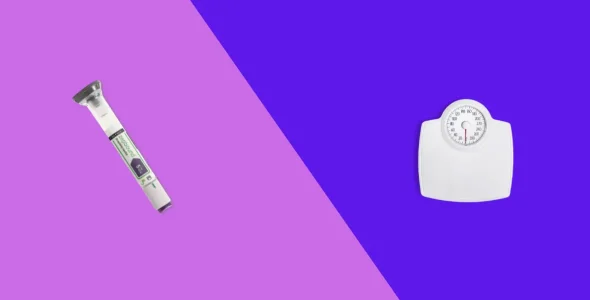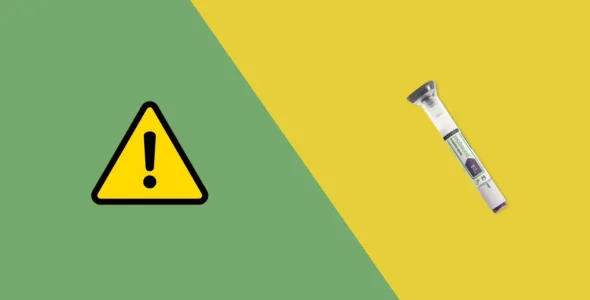Zepbound hair loss: Causes, prevention and recovery
Noticed more hair in your brush since starting Zepbound? You're not alone. But before you panic—here's the good news: Zepbound-related hair loss is usually temporary, and there are proven ways to fight back. Let’s dive into why it happens, how to stop the shedding, and when you can expect your hair to bounce back.
Key highlights
- Zepbound is a popular injectable weight loss medication with tirzepatide as an active ingredient. The medication activates GLP-1 and GIP receptors simultaneously to promote weight loss when combined with a balanced diet and exercise.
- Although the medication is highly effective in managing chronic weight, clinical trials show that 4-5% of patients experience hair loss with Zepbound.
- Rapid weight loss and stress are the triggering factors that cause telogen effluvium (hair loss) in patients taking Zepbound.
- Nutritional deficiencies, emotional stress, caloric restrictions, hormonal fluctuations, comorbid health conditions, such as PCOS and autoimmune diseases, and certain medications can also cause hair loss during Zepbound treatment.
- Zepbound hair loss can be managed with dietary modifications, lifestyle changes, supplements, gradual weight loss, gentle hair practices, and topical treatments.
Hair loss can be frustrating, especially when you are trying to stay healthy and lose extra weight. While taking Zepbound, you may notice strands of hair in the shower or a thinning hairline, which might shatter your confidence. There is no need to worry, as Zepbound hair loss is usually temporary and can be managed with certain lifestyle changes and over-the-counter medications.
Zepbound is a dual agonist at GLP-1 and GIP receptors that contains tirzepatide as an active ingredient. The medication is injected once weekly and is popular for promoting weight loss. Developed by Eli Lilly, Zepbound is indicated for promoting weight loss in patients with obesity (BMI 30 or greater) and overweight (BMI 27 or greater) with at least one weight-related condition such as high blood pressure, type 2 diabetes, high blood cholesterol levels, and heart diseases and those experiencing mild to moderate obstructive sleep apnea (OSA) when used in combination with a low-fat diet, exercise, and increased physical activity.
This article provides a comprehensive guide that explores the link between Zepbound and hair loss, delves into the root causes, and offers practical management strategies to deal with hair loss. Our goal is to empower you with knowledge and practical steps to support both your weight loss and hair health.
Does Zepbound cause hair loss?
Zepbound is a prescription medication which is primarily used for weight loss. The medication has a dual mechanism of action. It occupies GLP-1 (glucagon-like peptide 1) and GIP (glucose-dependent insulinotropic peptide) receptors simultaneously to mimic the action of naturally occurring GLP-1 and GIP hormones. The synergistic effect of activation of these receptors works in the following ways to promote weight loss:
- The medication suppresses appetite and gives you a feeling of satiety that decreases the frequency of food intake. You experience fewer hunger pangs.
- Zepbound boosts insulin release from the beta cells of the pancreas and insulin sensitivity, which helps maintain blood sugar levels.
- Glucagon is responsible for increasing blood sugar levels. Zepbound decreases glucagon secretion from the alpha cells of the pancreas.
- This medication also delays the rate of gastric emptying by relaxing the muscles of your stomach. When food stays longer in the stomach, it gives a feeling of fullness, and you do not feel an urge to eat food frequently, which helps with weight loss.
Hair loss is reported as an adverse side effect of tirzepatide (Zepbound and Mounjaro) in clinical trials. However, it is not considered a direct pharmacological side effect like nausea, abdominal discomfort, vomiting, constipation, diarrhea, pancreatitis, hypoglycemia, or allergic reactions.
Hair loss with Zepbound is usually temporary and occurs due to telogen effluvium. Clinical trial data suggest that 4-5% of patients reported hair loss with Zepbound, compared to 1% in the placebo group. There was a higher incidence of hair loss in women (7.1%) vs. men (0.5%) in the Zepbound group compared to placebo (1.3% women vs. 0% men). It is important to note that there was no report of treatment discontinuation due to hair loss.
Why does Zepbound cause hair loss (telogen effluvium explained)
Hair loss during Zepbound treatment is primarily a consequence of the physiological stress induced by rapid and significant weight loss. It is linked to a medical condition called telogen effluvium, in which the hair enters the resting (telogen) phase instead of the growth cycle (anagen phase) due to various triggering factors.
Sudden weight loss with Zepbound acts as a physiological stressor that triggers telogen effluvium. Your body may perceive weight loss and less food intake as starvation and try to conserve energy by cutting off non-essential functions like hair growth.
Zepbound itself does not induce hair loss. However, it may indirectly contribute to it. As the medication is used with a low-calorie diet and Zepbound itself reduces food intake by suppressing appetite, it may lead to nutritional deficiencies. Nutritional deficiencies also contribute to hair loss.
Additionally, hair loss can cause stress, which increases cortisol levels in the body. Cortisol acts as a trigger for telogen effluvium. This way, a vicious cycle of hair loss induced by stress continues. You may experience the same effect with other GLP-1 medications such as Wegovy, Ozempic, and Mounjaro.
Understanding telogen effluvium: The body’s stress response
Let’s understand the hair growth cycle to understand how telogen effluvium affects your hair. The hair growth cycle is divided into these phases:
- Anagen – growth phase
- Catagen – transition phase
- Telogen – resting phase
- Exogen – shedding phase
Normally, 85% of your hair stays in the growth or anagen phase, 15% in the telogen or resting phase and a few in the telogen phase. A hair stays in the growth phase for 4 years. Afterwards, it enters the telogen phase for 4 months before shedding. When new hair starts to grow, the previous one enters the exogen or shedding phase.
In telogen effluvium, any trigger, such as inflammation, stress, or toxins, interrupts the anagen phase and hair goes into the telogen phase directly, which leads to premature hair shedding, diffuse hair loss, and hair thinning.
Telogen effluvium is triggered by a “shock” or stressor, which may occur due to the following causes:
- Rapid weight loss
- Surgery
- Childbirth
- Severe illness
- Emotional stress
- Nutritional deficiencies, such as iron deficiency
- Certain medications
- Endocrine disorders.
Hair shedding typically begins about 2 to 4 months after the stressful event (i.e., when rapid weight loss started), as the resting hairs take time to fully detach.
Normally, your scalp sheds 100 hairs per day. In telogen effluvium, you may shed 300 hairs per day or more with generalized hair thinning.
How common is hair loss with Zepbound?
In clinical trials, 5% of patients taking 5 mg of Zepbound, 4% of patients taking 10 mg, and 5% of patients taking 15 mg weekly dose of Zepbound experienced hair loss, compared to 1% with placebo. Hair loss was more prevalent in females.
Another clinical study reflects that approximately 1 in 4 patients using tirzepatide (Zepbound) for weight loss report hair thinning or hair loss. Around 22.7% of patients experience bald patches (alopecia) with the medication.
Other contributing factors to hair thinning on Zepbound
Other factors that contribute to hair thinning are nutritional deficiencies, calorie restriction, low-fat diet, hormonal fluctuations due to weight loss, and other underlying conditions.
Nutritional deficiencies
Zepbound mimics the action of GLP-1 and GIP hormones to suppress appetite. You start to consume fewer calories due to appetite suppression and may miss out on essential nutrients that are necessary for hair growth. Additionally, common side effects of Zepbound, such as nausea, vomiting, and diarrhea, may also lead to nutrient deficiencies. A combination of a low-calorie diet, reduced food intake, and depletion of essential nutrients due to vomiting and diarrhea can result in hair thinning and hair loss.
Proteins
Proteins act as building blocks of keratin, which is the major structural protein that makes hair strands. Keratin forms a protective barrier around the hair shaft and supports the growth of hair follicles. Proteins are also responsible for repairing hair damage, stimulating hair regrowth, and preventing hair loss. If you do not take enough protein during Zepbound treatment, you may have dry, frizzy, listless hair, which is prone to breakage and hair loss.
The daily recommended allowance for protein in healthy adults is 0.8 grams per kg.
Iron
Iron is the basic component of hemoglobin (a protein in red blood cells), which is responsible for transporting oxygen to your hair follicles. Additionally, iron supports the anagen or growth phase of hair follicles.
Iron deficiency anemia can cause hair thinning and diffuse hair loss. Other symptoms that indicate iron deficiency anemia are fatigue, headaches, pale skin, brittle nails, restlessness, dizziness, and rapid heartbeat.
Zinc
Zinc is a trace mineral that supports cell division and follicle functions. It also promotes tissue proliferation, growth, and repair. Zinc plays an important role in keratin synthesis. Its anti-inflammatory and anti-oxidant properties prevent scalp inflammation.
This trace mineral is also responsible for regulating hormones like androgens and preventing alopecia.
Biotin (Vitamin B7)
Biotin, also known as vitamin B7, is essential for keratin synthesis. It acts as a coenzyme in the metabolism of fatty acids, glucose, and amino acids to produce cellular energy. This vitamin improves skin barrier functions and prevents dryness or flakiness.
Biotin deficiency can cause hair loss, dryness, flaking, redness, skin rashes, fatigue, and scalp inflammation.
Vitamin D
Hair follicles contain Vitamin D receptors; their activation initiates the growth phase of the hair cycle. Vitamin D supports the anagen phase, prevents inflammation, and promotes hair follicle regeneration.
Vitamin D deficiency disrupts the hair cycle, and hair enters the telogen phase without completing the anagen or growth phase. This may lead to hair thinning and hair loss.
Vitamin D deficiency can cause telogen effluvium, alopecia areata, and androgenic alopecia in women. Symptoms of vitamin D deficiency are fatigue, bone or joint pain, hair loss, increased risk of infections, and mood changes.
Other potential nutrients
Other nutrients essential for hair growth are magnesium, selenium, Omega-3 fatty acids, and vitamins A, C, and E. Their deficiencies can also cause hair loss. Restricted or imbalanced diets on Zepbound (due to appetite suppression or side effects like nausea) can inadvertently lead to these deficiencies.
Caloric restriction and energy prioritization
When you are on Zepbound treatment, your food intake is significantly reduced. Your body is in a significant calorie deficit and tries to preserve energy for essential body functions. It prioritizes essential functions for survival, such as blood circulation, respiration, cardiac functions, and brain activity, over “non-essential” functions like hair growth. Hair follicles may simply not receive enough energy or nutrients to grow properly, which leads to hair thinning.
In comparison, if you lose weight slowly and steadily (1-2 lbs/week), it does not give your body a “shock” and is less likely to trigger severe telogen effluvium.
Hormonal fluctuations
Rapid and significant weight loss can also impact hormone levels, including thyroid hormones and sex hormones or androgens. Hormonal imbalance can influence the hair growth cycle and trigger telogen effluvium.
Hypothyroidism (reduced thyroid function) is specifically linked to hair loss, and this condition is exacerbated by weight changes. If you suspect your thyroid functions are disrupted, consult your healthcare provider for further laboratory investigations. They may recommend serum T3, T4, and TSH levels to assess thyroid function.
Perimenopausal and postmenopausal women may also experience increased hair loss due to fluctuations in estrogen levels. Estrogen promotes hair growth, activates the anagen phase, and helps maintain hair texture. Low estrogen levels after menopause can cause hair loss.
Pre-existing conditions and other medications
Other medical conditions, such as polycystic ovarian syndrome (PCOS) in females, autoimmune diseases, and chronic health conditions, or certain medications (such as antidepressants, antihypertensive medications, antifungals, birth control pills, chemotherapeutic drugs, steroids, NSAIDs, statins, methotrexate, immunosuppressive drugs, anticonvulsants, and retinoids) can cause hair loss. They may exacerbate hair thinning and hair loss during Zepbound treatment.
Consult with your doctor to rule out these underlying causes and get your personalized treatment.
How to prevent hair loss while taking Zepbound
The following tips can help you prevent hair loss while taking Zepbound:
Optimize your nutrition
Consume food rich in nutrients such as vitamins and minerals for hair health. These include biotin, iron, zinc, proteins, iron, and vitamin D.
Here is a list of the best foods to eat while on Zepbound:
- Adequate protein intake: Proteins are crucial for keratin synthesis and hair growth. Rich sources of protein include lean meat, poultry, fish, eggs, dairy, legumes, tofu, and protein powders. Try to incorporate protein in every meal and snack on protein-rich foods.
- Professional guidance: If you struggle with nutritional deficiencies, consult with a registered dietitian or a nutritionist experienced with weight loss medications to create a personalized meal plan and identify potential deficiencies.
- Micronutrient focus: Consume balanced and nutrient-dense foods such as fruits, vegetables, and whole grains to avoid micronutrient deficiencies. The following foods can help combat hair loss due to micronutrient deficiencies:
| Nutrient | Food Sources |
|---|---|
| Iron | Red meat, fish, poultry, spinach, lentils. Pair with vitamin C (citrus, bell peppers) to boost absorption. |
| Zinc | Oysters, beef, lentils, chickpeas, pumpkin seeds. |
| Biotin | Eggs, nuts, seeds, sweet potatoes. |
| Vitamin D | Fatty fish, fortified foods, sunlight exposure. |
Consider supplements
Certain supplements, such as collagen peptides, biotin, and omega-3s, can also help combat nutritional deficiencies that cause hair loss. You can also consider taking general multivitamins to fulfill your nutritional needs. However, weight loss medications may interact with supplements. Consult with your doctor to confirm whether they are safe for you.
Avoid mega-dosing specific supplements unless a deficiency is confirmed by a blood test. Too much of some vitamins, such as vitamin A and selenium, can also cause hair loss. Always consult your doctor before starting supplements.
Lose weight gradually
Do not lose weight rapidly, as this can trigger hair loss. Work with your doctor to lose weight more gradually and aim for sustainable weight loss. You can aim for a target of losing 1-2 pounds per week rather than an extremely rapid loss.
If you feel like your weight is decreasing rapidly and more aggressively, along with hair loss, discuss your concerns with your healthcare provider. They may lower the dosage to achieve a sustainable and gradual weight loss that aligns with your body’s needs.
Gentle hair practices
The following hair practices can help manage hair loss:
- Avoid tight hairstyles, such as tight ponytails, heat styling, and applying harsh chemicals to your hair.
- Use gentle sulphate-free shampoos and conditioners to soften your hair and make them more shiny and manageable.
- Avoid harsh chemical treatments such as dyes, perms, and relaxers.
- Minimize heat styling by using blow dryers, straighteners, and curling irons.
- Hairstyles such as braids and ponytails pull on the hair roots, which can cause tractional hair loss. Avoiding these hairstyles can help manage hair loss.
- Be gentle when brushing wet hair; use a wide-tooth comb.
- Use silk pillowcases.
Manage stress and sleep
Weight loss itself is a physical stressor to your body that can trigger hair loss, but added emotional stress can worsen telogen effluvium. Stress enhances the release of cortisol, which can cause hair loss and weight gain.
Practice stress management techniques such as yoga, regular exercise, meditation, and mindfulness to relieve stress. Try to spend time in nature, talk to your loved ones, and do your favourite chores. If you have severe anxiety and depression, consult your psychiatrist for cognitive behavioural therapy (CBT).
Sleep also plays a critical role in maintaining hair health. Have a good quality sleep every night (for at least 7-8 hours). Minimize your screen time, and avoid taking tea or coffee around sleep hours. Adequate sleep also helps relieve stress.
Topical treatments
Minoxidil (brand name Rogaine) is a popular medication to treat hair loss. The medication increases blood flow to the scalp and hair follicles, increases the size of hair follicles, and prolongs the growth or anagen phase of the hair cycle. Although this medication is not a first-line treatment for telogen effluvium, it can help with persistent hair loss.
Platelet-rich plasma injections contain platelet-rich plasma protein, which is derived from your blood. It contains several growth factors and platelet-activating factors. Activated platelets in PRP release these growth factors to stimulate hair growth, protect hair follicles from premature transitioning into the telogen phase, and induce growth of the hair follicles.
In addition, research studies show that PRP increases the number of hair follicles and improves the blood supply of the scalp when compared with a placebo.
These more advanced options can only be administered by dermatologists to stimulate hair growth. You can not try them at home.
Low-level laser therapy, also known as low-intensity light, can help treat hair loss. This therapy uses a certain range of wavelengths from red to infrared laser light that stimulates cellular activity, activates the anagen phase of the growth cycle, and promotes repair and regeneration. You can use low-level laser therapy devices at home.
Consult with your healthcare provider
If you are experiencing hair loss with Zepbound, inform your prescriber and seek medical advice. They may guide you on how to manage hair loss or refer you to a dermatologist (skin and hair specialist) or a trichologist (hair and scalp specialist) for a thorough evaluation and personalized recommendations, especially if you have severe or atypical hair loss.
They may also recommend certain tests to evaluate nutritional deficiencies, such as serum ferritin, vitamin D, and thyroid function tests.
Is hair loss with Zepbound permanent?
No, hair loss with Zepbound for the treatment of obesity is temporary. It can be reversed with the above-mentioned lifestyle changes and treating the underlying cause.
Reversibility
Hair loss due to telogen effluvium while taking weight loss drugs is almost always temporary and reversible. This condition sheds hair more frequently but does not damage your hair follicles permanently.
Timeline for hair regrowth
Hair typically starts to regrow once your body starts to adjust to the new weight and the “stress” trigger subsides.
Typically, hairs begin to grow back within 3 to 6 months after the initial shedding period ends or your body weight stabilizes. However, full-thickness return can take 6-12 months or even longer, depending on your body’s ability to regrow hair.
What if it seems permanent?
If hair loss persists beyond 6-12 months, becomes patchy, or is accompanied by other symptoms, such as scalp itching, redness, hormonal changes, acne, or weight changes, it is crucial to seek medical evaluation. This could indicate another underlying cause.
Will my hair grow back after stopping Zepbound?
Yes, your hair will grow back after stopping Zepbound. Typically, hair regrowth starts within 3-6 months of stopping the medication. However, your hair shedding will reduce within 3 months. It may take 6-12 months to regain full hair thickness.
If you have any underlying issue that causes hair loss, your hair may not grow back until you treat that condition. In such cases, consult with your healthcare provider to assess the root cause.
When to see a doctor about Zepbound hair loss
Consult your doctor if:
- You experience severe shedding (300 hairs per day or more), or there is visible hair thinning.
- You start to develop bald patches in your scalp (alopecia areata).
- You have itching, pain, redness, flaking, and inflammation in the scalp.
- Hair loss is persistent despite a healthy lifestyle.
- You experience other health problems along with hair shedding, such as fatigue, joint pain, heat or cold intolerance, menstrual irregularities, and brittle nails.
Your doctor will rule out Vitamin D deficiency, zinc deficiency, thyroid dysfunction, iron deficiency anemia, PCOS, and autoimmune conditions.
Zepbound vs. other GLP-1 medications: Hair loss comparison
The Journal of Drugs in Dermatology published an issue on GLP-1 medications in 2024. According to the issue, tirzepatide shows the highest incidence of patchy hair loss (alopecia) in patients.
The incidence of alopecia was 11.8% with liraglutide, 13.3% with semaglutide, and 22.7% with tirzepatide.
Zepbound hair loss FAQs
How long does Zepbound hair loss last?
Zepbound hair loss typically lasts for 3 to 6 months while your body is trying to adjust to weight changes. As soon as the body weight stabilizes, hair loss usually subsides.
Can I take biotin with Zepbound?
Zepbound may interact with certain supplements, such as biotin. However, no clinical trials have tested the interaction between these medications. Consult your doctor to discuss whether biotin is suitable for you during Zepbound treatment.
Should I stop Zepbound if I’m losing hair?
No, hair loss is not an indication to stop Zepbound. You can manage it with healthy lifestyle habits and a nutrient-rich diet. Moreover, Zepbound hair loss usually subsides over time as soon as your body weight stabilizes.
If you experience severe hair fall with patchy hair loss or bald spots, inflammation, redness, itching, and flaking, consult your healthcare provider.
Does everyone on Zepbound experience hair thinning?
No, only 4 to 5% of patients experience hair thinning with Zepbound. Most patients do not shed hair with Zepbound. However, patients with nutritional deficiencies, thyroid problems, PCOS, autoimmune conditions, or any other underlying health issues are more likely to experience hair thinning compared to healthy individuals.
Will taking a higher dose of Zepbound make hair loss worse?
Yes, higher doses of Zepbound may worsen hair loss due to more significant weight changes that act as a trigger for hair loss. However, not everyone experiences hair loss with higher doses of Zepbound; individual response may vary.
Is hair loss more common with Zepbound than with other GLP-1 medications?
The Journal of Drugs in Dermatology states that tirzepatide (Zepbound) is associated with more hair loss (with an incidence of 22.7%) compared to other GLP-1 medications like liraglutide (11.8%) and semaglutide (13.3%).
Are there specific supplements or vitamins I must take?
There are no mandatory supplements or vitamins to take along with Zepbound. The medication may interact with supplements or vitamins. Consult your healthcare provider before starting any supplement or vitamin to discuss whether it is safe for you.
Is it safe to try over-the-counter hair growth products?
It is generally considered safe to try over-the-counter hair growth products with Zepbound. If you plan to take any oral or topical medication, discuss it with your healthcare provider. They will confirm whether the product is safe to use along with Zepbound.
Conclusion: Understanding hair loss on Zepbound and how to manage it
Hair loss may occur in 4-5% of patients taking Zepbound, but hair shedding with the medication is usually temporary. This temporary hair loss occurs due to rapid weight changes, and this effect subsides when your body weight stabilizes.
You can reduce hair loss by increasing your protein intake, adding foods rich in iron, zinc, biotin, and vitamin D to your diet, avoiding tight hairstyles, heat styling, and harsh chemicals, managing sleep and stress, and taking hair growth supplements. You can also use over-the-counter topical hair loss treatments such as minoxidil, platelet-rich plasma treatment (PRP), and low-level laser therapy.
Do not panic, stay patient and trust in the process with the support of your healthcare provider. However, in case of severe hair loss, bald patches, inflammation, and redness, consult with your doctor to treat the underlying cause.
